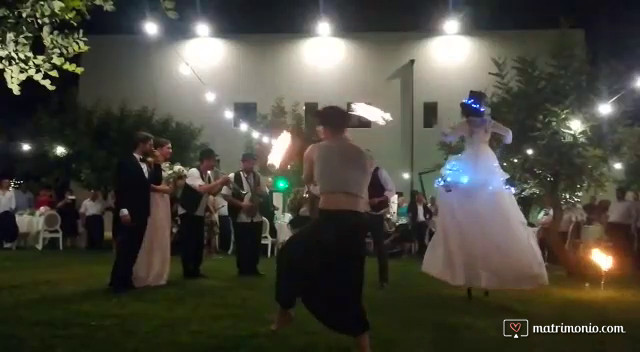Gambling Band Lecce

Moderate gambling, like moderate alcohol use, is an accepted part of our culture and causes no problems. As with alcohol use, however, gambling to excess is a common weakness that may lead to serious security problems.
Compulsive gambling, or pathological gambling as most psychiatrists prefer to call it, is an inability to stop gambling even when one recognizes that gambling is causing serious financial, family, work, or other problems.
Compulsive gambling parallels alcohol and drug addiction in many ways. Compulsive gamblers lose control over their behavior and commonly lie and cheat in order to continue their gambling. They frequently try, unsuccessfully, to cut down or quit.
Compulsive gambling does not involve use of a psychoactive substance, but the 'action' which compulsive gamblers crave is an aroused, euphoric state comparable to the 'high' sought by drug users. This aroused state is accompanied by changes in brain chemistry similar to those caused by alcohol or drugs. There may be a 'rush,' often characterized by sweaty palms, rapid heart beat, and nausea which is experienced during the period of anticipation.
Alcoholics and drug abusers develop 'tolerance' for their drug of choice and then must increase their consumption in order to feel the same effects. Similarly, compulsive gamblers develop 'tolerance' for the 'action' and must increase the size of their bets or the odds against them to create the same amount of excitement.
Indicators of Compulsive Gambling
Compulsive gamblers tend to be bright, energetic, competitive, adventuresome individuals. In short, they may have the characteristics of an otherwise ideal employee. There are no obvious physical signs. Unlike some drug or alcohol abusers, there are no needle marks, breath odor, slurred speech or staggering gait. Like alcoholics and drug addicts, compulsive gamblers typically deny any problem until they hit rock bottom and are desperate for help.
One of the clearest indicators of a serious gambling problem is borrowing money to gamble or to pay off gambling debts. This is the heart of the security issue, which is the gambler's need for money. Another significant indicator is any effort to conceal one's gambling from spouse, children, friends, or co-workers, e.g., hiding betting slips or lottery tickets. This indicates some shame or embarrassment about one's behavior.
Other indicators of a potential or actual gambling problem include: gambling as a way of escaping from problems or relieving feelings of helplessness, guilt, anxiety, or depression; needing to gamble with increasing amounts of money in order to achieve the desired excitement; and repeated unsuccessful efforts to control, cut back, or stop gambling
Compulsive gambling has been called the 'hidden disease,' as there are few overt signs of it in the workplace until the problem is in its most advanced stage. Astute observers may, however, pick up clues.
- Yahoo Sports may receive compensation from BetMGM in connection with the wagers you make on the BetMGM platforms. Yahoo Sports Betting Info - West Virginia. West Virginia is known for its rather conservative way of life and laws, but when it comes to gambling, it is one of the most progressive states in the U.S. Betting on horse racing has been legal in WV since the 1930s, and the same goes.
- Overall, gambling tax revenue for the state fell by 13.4% to $1.2 billion last fiscal year. Officials will look to legal sports betting and other gaming revenue streams to help recover from.
- Pala Band of Mission Indians. Pala Casino, Resort & Hotel. Gym/Physical Fitness Center. Pala Live Lecce.
- He controlled the sports gambling operations from Datello's bar 'Night Gallery' in New Dorp, Staten Island. The indictment also stated Croce would have conversations with mobsters on the streets of the Financial District and the Staten Island Ferry. On December 21, 2009, he was released from prison. Salvatore Cutaia.
Search the world's information, including webpages, images, videos and more. Google has many special features to help you find exactly what you're looking for.
- Late to work (due to late night card game, casino venture, or bad night's sleep worrying about gambling-related problems).
- Long lunches (betting, gambling or setting up loans).
- Mysterious disappearance in the afternoon (typically at the track, off-track betting, afternoon card or dice game, or listening to sporting events).
- Sick days taken right when they become available rather than allowed to accumulate (uses sick days to gamble).
- Vacation used in isolated days rather than blocks.
- Excessive use of the telephone (calls to off-track betting, bookie, creditors, or to find money; calls from bookie or creditors).
- Operates office sports pool or paycheck pool (the person running these sometimes has a gambling problem).
- Collects money from other employees.
References 1. Gambling Impact and Behavior Study: Final Report of the National Gambling Impact Study Commission. University of Chicago: National Opinion Research Center, March 18, 1999.
2. G. J. Smith, R. A. Volberg & H. J. Wynne (1994). Leisure behavior on the edge: Differences between controlled and uncontrolled gambling practices. Society and Leisure, 17, 1.
3. This section is mainly a mixture of quotation and paraphrase from the work of H. Lesieur. The compulsive gambler's spiral of options and involvement. Psychiatry: Journal for the Study of Interpersonal Processes (1979), 79-87 and The female pathological gambler, in W. R. Eadington (Ed.), Gambling studies: Proceedings of the Seventh International Conference on Gambling and Risk Taking, (Reno, NV: Bureau of Business and Economic Research, University of Nevada).
4. L. Lieberman (1988). A social typology of gambling behavior. (New York State Office of Mental Health contract #C-001361). New York: National Council on Compulsive Gambling, pp. 44-49.
5. H. Lesieur & M. Heineman (1988). Pathological gambling among youthful multiple substance abusers in a therapeutic community. British Journal of Addictions, 83, 765-771.
6. H. Lesieur (1988). The female pathological gambler. In W. R. Eadington (Ed.), Gambling research: Proceedings of the Seventh International Conference on Gambling and Risk Taking. Reno, NV: Bureau of Business and Economic Research, University of Nevada-Reno.
7. H. Lesieur (1986). Understanding compulsive gambling, (Center City, MN: Hazelden Educational Materials).
8. R. J. Heuer, Jr. (1992) Compulsive Gambling: Background Information for Security Personnel (Monterey, CA: Defense Personnel Security Research Center.) Reprinted in the journal Polygraph, Vol. 22, No. 1, 1993.
9. Jane E. Brody, 'Compulsive Gambling: Overlooked Addiction,' New York Times, May 4, 1999, p. D7.
10. H. Lesieur & R. Rosenthal (1991). Pathological gambling: A review of the literature. Journal of Gambling Studies, 7, 5-40. Hospital sample is from H. Lesieur, S. Blume & R. Zoppa (1986). Alcoholism, drug abuse, and gambling. Alcoholism: Clinical and Experimental Research, 10, 33-38. Veterans Administration and Gamblers Anonymous sample is from R. Nora (1984, December). Profile survey on pathological gamblers. Paper presented at the Sixth Annual Conference on Gambling and Risk Taking, Atlantic City, NJ. Sample of female Gamblers Anonymous members is from H. Lesieur (1987). The female pathological gambler. In W. R. Eadington (Ed.), Gambling research: Proceedings of the Seventh International Conference on Gambling and Risk Taking, (Reno, NV: Bureau of Business and Economic Research, University of Nevada-Reno).
11. H. Lesieur & K. Puig (1987). Insurance problems and pathological gambling. Journal of Gambling Behavior, 3, 123-136.
12. J. Ciarrocchi (1987). Severity of impairment in dually addicted gamblers. Journal of Gambling Behavior, 3, 16-26
13. H. Lesieur (1988). The female pathological gambler. In W. R. Eadington (Ed.), Gambling studies: Proceedings of the Seventh International Conference on Gambling and Risk Taking, (Reno, NV: Bureau of Business and Economic Research, University of Nevada).
Top of the Slots
With the music charts filled with stories of love and loss, it can be a relief to hear a song about something different, such as online bingo.
Although not quite as offbeat as some of the “music” produced by Z-list Celebrity Big Brother contestants, the topic of gambling has garnered a famous back catalogue of its own.
And, while there are plenty of terrible examples that not even Nigel Winterburn could defend, the final songs on our shortlist are toe-tapping, card snapping classics.
Here is our rundown of the top four greatest songs ever written about the world of casinos, Las Vegas and Lady Luck herself.
Rambling, Gambling Willie
Bob Dylan
Recorded way back in July 1962, Rambling Gambling Willie, was originally intended to be part of Dylan’s second album.
The song tells the story of Will O’ Conley, a master gambler with 27 children, no wife and seemingly endless amounts of good fortune.


Poor Willie’s luck eventually ran out when a victim of his success shot him through the head. The moral of this song appears to be: make as much money as you can before somebody takes offence and murders you. Deep.
Ace of Spades
Motorhead
Inspired by the slot machines played by frontman, Lemmy (Ian Kilmister), in London pubs, Ace of Spades is the most famous song of heavy metal band, Motorhead.
The song was released in 1980 and also served as the title track of the band’s fourth studio album.
Ranked number 155 out of the 500 Greatest Songs o All Time by NME magazine, Ace of Spades is a fast-paced sweep through an all or nothing card game.
The song is so popular among gamblers that slot provider, Netent, even created a dedicated Motörhead slot game.
The Gambler
Kenny Rogers
Made famous by American country star, Kenny Rogers, and written by Don Schlitz in 1976, “The Gambler” has also been covered by Johnny Cash and Bobby Bare.
The slightly morbid lyrics describes the tale of a late-night train meeting between the singer and a down on his luck gambler, and ends the likely death of the latter in his sleep.
The song was selected for preservation by the Library of Congress in 2018 due to it being “culturally, historically, or artistically significant.”
Viva Las Vegas
Elvis Presley
Americans love to sing about their big cities. From New York (New York) to Chicago, you could barely imagine a British Frank Sinatra singing about Norwich, Sunderland or Slough.
Released as the theme song of its namesake 1964 film, “Viva Las Vegas” was actually recorded one year earlier by Elvis Presley.

Gambling Band Lecce From Bari
With four verses dedicated to paying tribute to the original “Sin City”, Elvis covers every temptation and taboo available beneath the glow of neon lights.